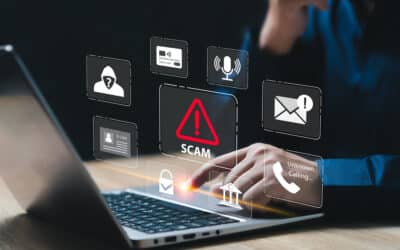A recent National Public Data (NPD) breach exposed the social security numbers, phone numbers, addresses, email addresses, birthdates and other sensitive information of hundreds of millions of American, Canadian and UK citizens. This is one of the largest and most complete exposures of personally identifiable information that has ever occurred. It is likely that in the coming weeks, months or years this information will be used on a mass scale to attempt to perpetrate fraud and identity theft. Obviously, this can have serious impacts on your identity, finances and credit.
So, what can you do about a data breach? Unfortunately, there is nothing that can be done to remove the personal information that is already out there. But here’s what you can do to ensure that you keep control over your identity.
Get Informed
Check to see if your information has been exposed in this cyber breach. There are several websites that contain redacted data from the breach where you can see if your information is in there, including the NPD Breach and Pentester NPD Breach Check websites.
Remember, the personal information on these sites has been redacted and does not contain all the information that is in the breach. The data in the breach has your full social security number, birth date and other sensitive details. If your information is contained in the data, the following steps may help you protect your information from being used by fraudsters easily.
Freeze Your Credit
Experian, Transunion, and Equifax are the three major credit bureaus in the United States that collect and organize data to create consumer credit reports. All three of the credit agencies allow individuals to freeze their credit. This can help block all attempts to access your credit report so no new credit can be taken out in your name.
Freezing your credit does not affect your credit rating or have any negative consequences to existing lines of credit. When you know that you will be applying for credit in the future, you will have to unfreeze your credit at each of the agencies. You can also request a “thaw” which has a start and end date if you know that you will be seeking a line of credit during a specific timeframe. Ensure that a good phone number is listed to help with this process and that you are getting proper notifications.
There is no cost to freeze or unfreeze your credit, and it just takes a couple of minutes on each site to do it. Once you sign up with any of the three credit agencies, you will get “offers” from them to upgrade to paid accounts. You do not need to pay for an account to freeze your credit or to request copies of your credit report.
Place a Fraud Alert on Your Credit
If freezing your credit might seem too extreme, you can opt to place a fraud alert on your credit accounts. A fraud alert differs from a credit freeze in that a freeze prevents your credit information from being accessed without you specifically unfreezing it. A fraud alert asks creditors who view your credit report to verify your identification before approving credit.
The obvious advantage of a fraud alert is that you still have easy access to your credit without having to contact the credit reporting agencies. The downside is that if someone has stolen your information and created identification for themselves with your name and personal information, they can easily open lines of credit or bank accounts in your name. Also, fraud alerts will expire automatically whereas a credit freeze has no expiration date.
Check Your Credit Report
Another important step to your data breach response plan is to check your credit report and account statements to see if any unauthorized lines of credit have already been opened or other fraudulent activity has taken place in your bank account. The data in the National Public Data breach has been available on the dark web since April of 2024, so some of this information may have already been used to fraudulently open bank accounts, apply for credit or other identity theft activities.
Delete Your Data
While there is nothing you can do about the information that is already leaked, you may want to sign up for a personal data removal service that sends out requests to remove your data from public and private sources. Using one of these services may help to minimize your exposure to any future company security breaches.
National Public Data and other data aggregators, of which there are hundreds in the United States alone, scrape and purchase personal information about you from many different sources and combine all of it into large databases like the one that was exposed. Legitimate data aggregator businesses like these will usually honor requests to delete your data from their roles. Of course, nothing prevents illegitimate businesses, hackers and unscrupulous businesses from retaining your data.
Stay Alert
One of the consequences of this customer data breach is that everyone must be even more alert and cautious about emails, text messages and phone calls that they may receive both at home and at work.
Scammers use personal data and details like the information contained in the NPD breach to create believable scams and “verify” that they are who they say they are by giving you your personal details that only legitimate organizations should know. If you receive a call from someone claiming to be your financial institution, a business or the IRS, and they can provide your social security number, birthdate, address or past addresses, you may be much more likely to believe them.
To more easily identify and prevent fraud in situations like these, inform the individual that you will return their call using a verified and legitimate phone number. Should they express any resistance, it is likely indicative of a scam. Reputable businesses will always welcome the opportunity to confirm their identity.
Now that this information is widely available, Business Executive Compromises (BECs), Account Takeovers, Tax Identity Theft, Synthetic ID Fraud, Medical Identity Fraud, Home Title Fraud and Employment Fraud are all easier to perpetrate than ever.
While it is easy to dismiss many of the claims in the media regarding data privacy breaches, this data leak should be taken seriously and could have widespread consequences. More than ever, it is important to be vigilant about keeping your identity as secure as possible, taking proactive measures to keep your information safe online and staying alert to possible scams and all types of fraud.




